Except for this “precautionary” measure, Biden again urged Americans and people around the world to get vaccinated against the virus, reports Nikhila Natarajan
The newly discovered Omicron variant of Covid-19 in South Africa has raised fears about the global trajectory of the pandemic, while some countries, including the United States, have raced to impose travel restrictions on southern African countries.
On Friday, US President Joe Biden announced that his country will impose travel restrictions on eight African countries, including South Africa, Botswana, Zimbabwe, Namibia, Lesotho, Eswatini, Mozambique and Malawi, as the new coronavirus variant was detected on the continent.
Except for this “precautionary” measure, Biden again urged Americans and people around the world to get vaccinated against the virus.
Australia and Japan were among the latest countries on Saturday to either halt flights to the region or announce mandatory quarantines and screenings.
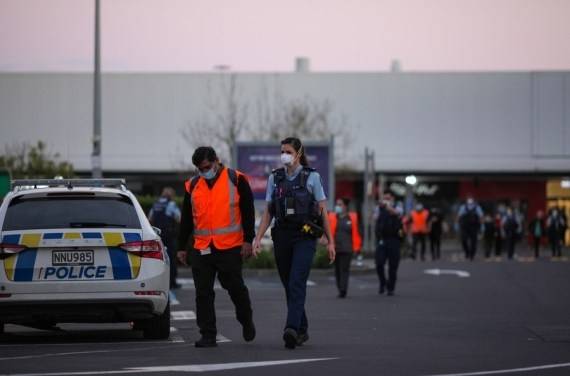
The World Health Organization (WHO) said there was preliminary evidence that the variant, which it named Omicron after the Greek letter, was more transmissible than the Delta variant that is currently dominant worldwide, and other virus strains. Meanwhile, Belgium, Israel and Botswana also detected first cases of the new variant.
“Although scientists were still figuring out the exact effects of the variant’s many mutations, its discovery highlights the continued threat posed by an evolving virus to the world’s emergence from the pandemic,” reported The Wall Street Journal on Friday.
US officials have spoken with scientists and leaders in South Africa to learn more about Omicron. The Centers for Disease Control and Prevention (CDC) said on Friday that Omicron hadn’t been identified in the US, while US stock markets sold off, with the Dow Jones Industrial Average suffering its worst day in a year.
The WHO labeled Omicron a “variant of concern,” a designation given to variants like Delta that require close scrutiny from public health officials. Preliminary evidence suggested that Omicron may increase the risk of reinfection relative to other variants of concern.
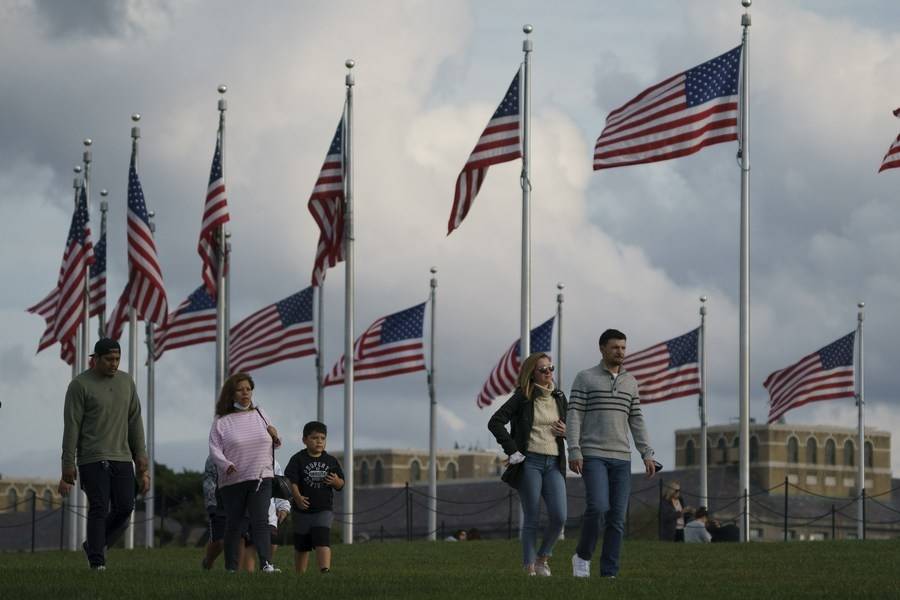
South African researchers identified the first Omicron case on November 9 and then reported the variant to the WHO on Wednesday. Scientists are hopeful that they spotted the variant early, since the majority of known cases are still concentrated in southern Africa.
“Scientists are still waiting on lab studies to determine how well coronavirus antibodies — either from natural infection or vaccines — hold up against Omicron. They’re also watching carefully to see how quickly the variant spreads across the globe, particularly in countries with higher vaccination rates,” reported Business Insider on Saturday.
Moderna, BioNTech-Pfizer and Johnson & Johnson all said that they’re testing how well their vaccines protect against Omicron.
Merck said on Friday in a final analysis of a clinical trial, its anti-viral pill reduced the risk of hospitalisation and death among high-risk Covid-19 patients by 30 per cent, down from an earlier estimate of 50 per cent.
“News of the Omicron variant, which has an unusually high number of mutations, will certainly throw a spanner in the works for the Biden administration as the President struggles with flagging approval ratings and a pessimistic view of the economy,” reported CNN on Friday.
“The administration will need to work quickly to get ahead of the new variant.”
The pandemic is far from over, and after nearly two years and more than 775,000 deaths, many Americans are traumatized and on edge, said the television network, adding that with the variants stymying hopes of a full recovery, “it has become increasingly difficult to embrace any good news, as fear and uncertainty continue to dictate so much of our lives.”
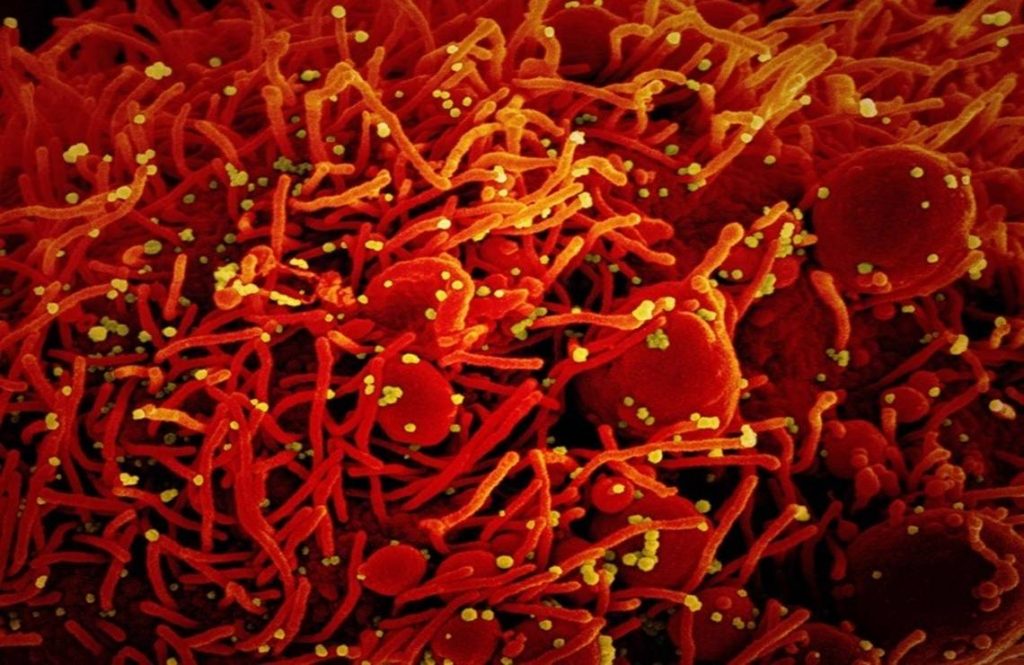
NY goes into emergency mode
New York governor Kathy Hochul has signed a sweeping executive order hoping to smash staffing and capacity shortages at hospitals in any post-Thanksgiving spike in Covid-19 cases.
The “Disaster Emergency” executive order allows the New York State Department of Health to limit “non-essential, non-urgent” procedures in hospitals or health care systems with already limited capacity.
The order defines “limited capacity” as below 10 per cent staffed bed capacity, or at the discretion of the DOH “based on regional and health care utilization factors.”
The order allows state agencies to step in to assist local municipalities if and when “the affected local governments are unable to respond adequately” to a variety of issues that may develop during the continuing pandemic.
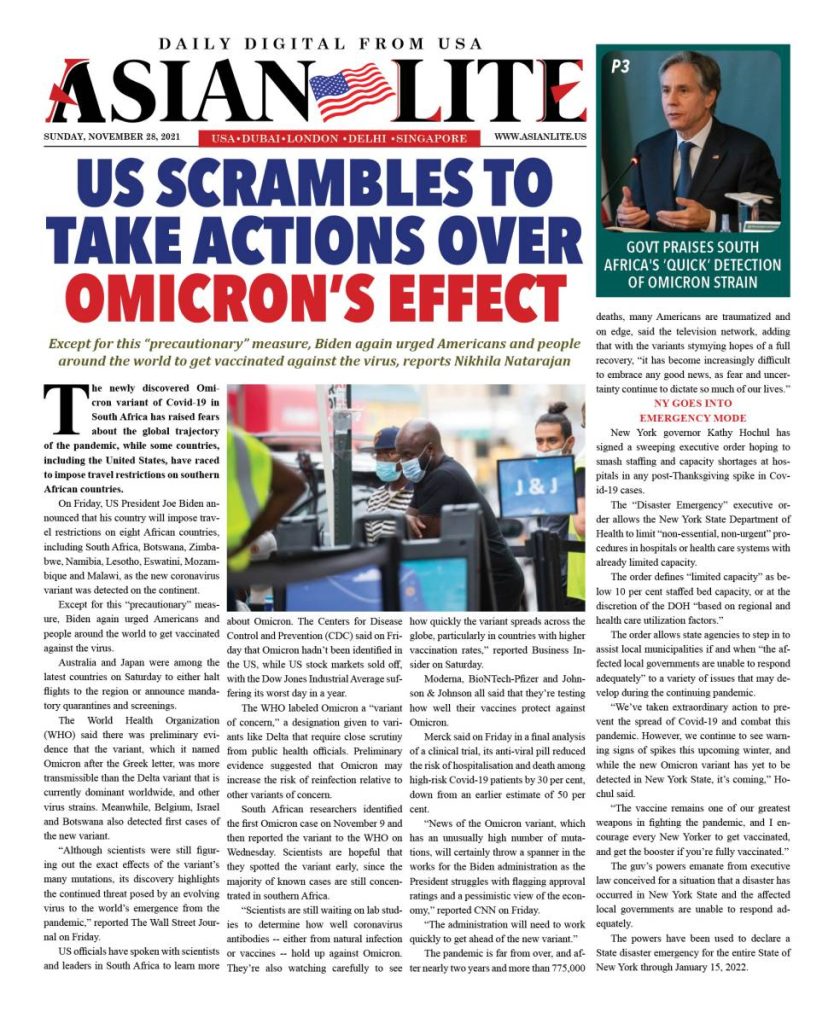
“We’ve taken extraordinary action to prevent the spread of Covid-19 and combat this pandemic. However, we continue to see warning signs of spikes this upcoming winter, and while the new Omicron variant has yet to be detected in New York State, it’s coming,” Hochul said.
“The vaccine remains one of our greatest weapons in fighting the pandemic, and I encourage every New Yorker to get vaccinated, and get the booster if you’re fully vaccinated.”
The guv’s powers emanate from executive law conceived for a situation that a disaster has occurred in New York State and the affected local governments are unable to respond adequately.
The powers have been used to declare a State disaster emergency for the entire State of New York through January 15, 2022.
The declaration, Hochul said, satisfies the requirements that allow the state to utilize the Surge and Flex system, which may include postponement of non-essential elective procedures.
Likewise, provisions in executive law, where the guv can suspend or modify any regulation binding any agency during a State disaster emergency, if the regulation is preventing action necessary to cope with the emergency.
Accordingly, Hochul has modified through December 26, 2021: Sections in the State Finance Law covering additional work, sites, funding, and time to State contracts or to award contracts for relocation and support of State operations under Public Buildings Law and contracts for professional services; or contracts for purchases of commodities, services, and technology. Purchase of necessary commodities, services, technology, and materials without following the standard notice and procurement processes. Likewise, purchase of food, supplies, services, and equipment or furnish centralized services to assist affected local governments, individuals, and other non-State entities in responding to the disaster emergency.
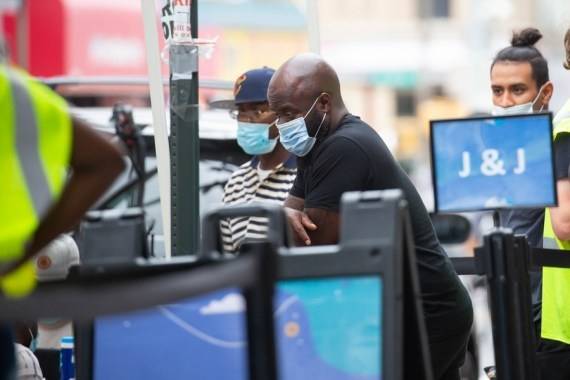
Leave a Reply